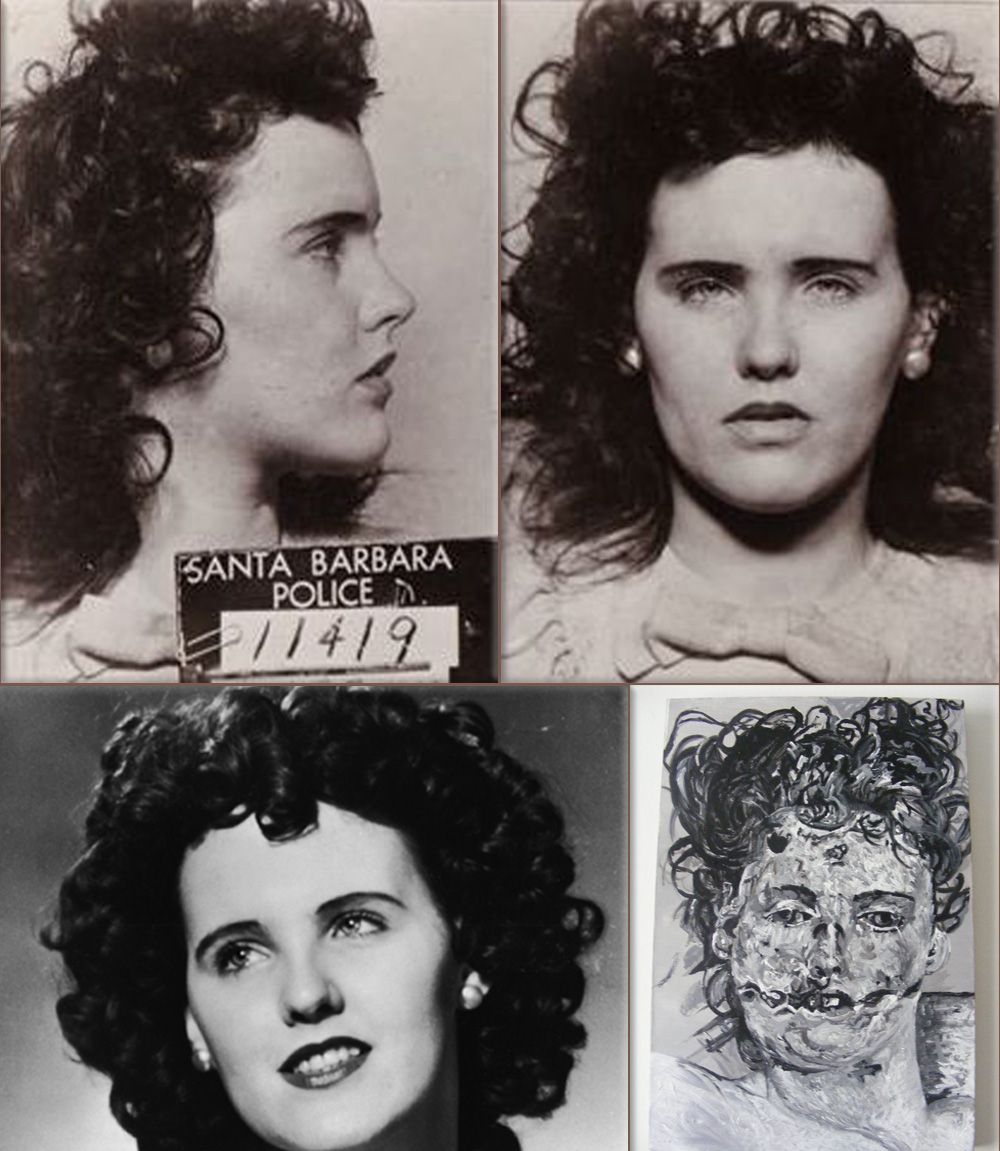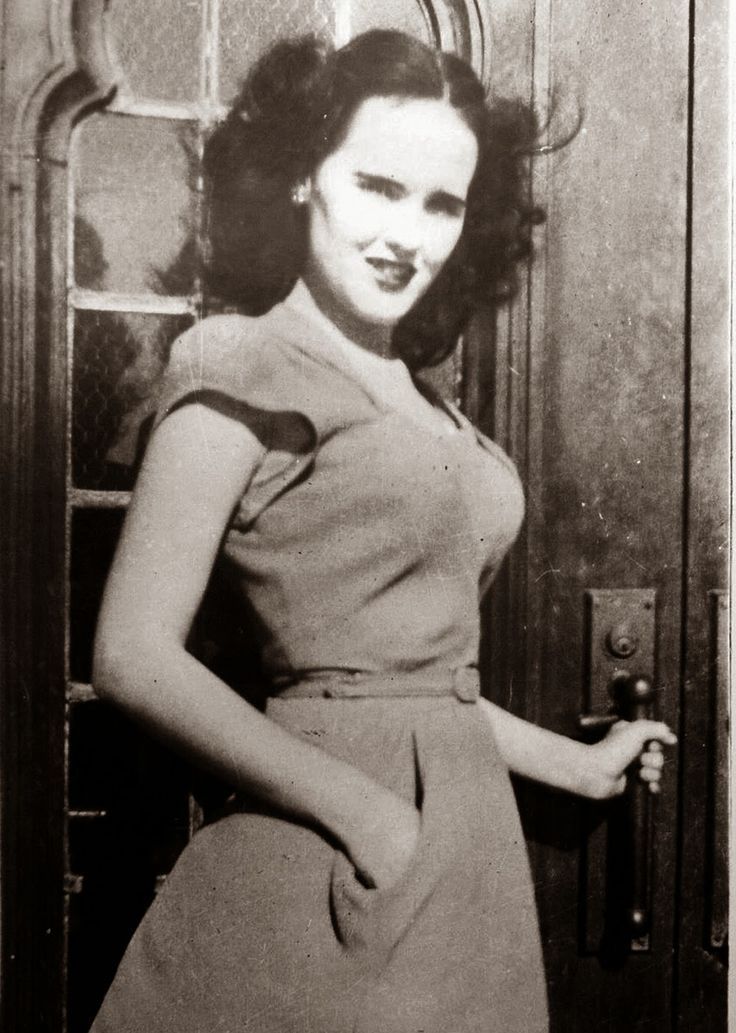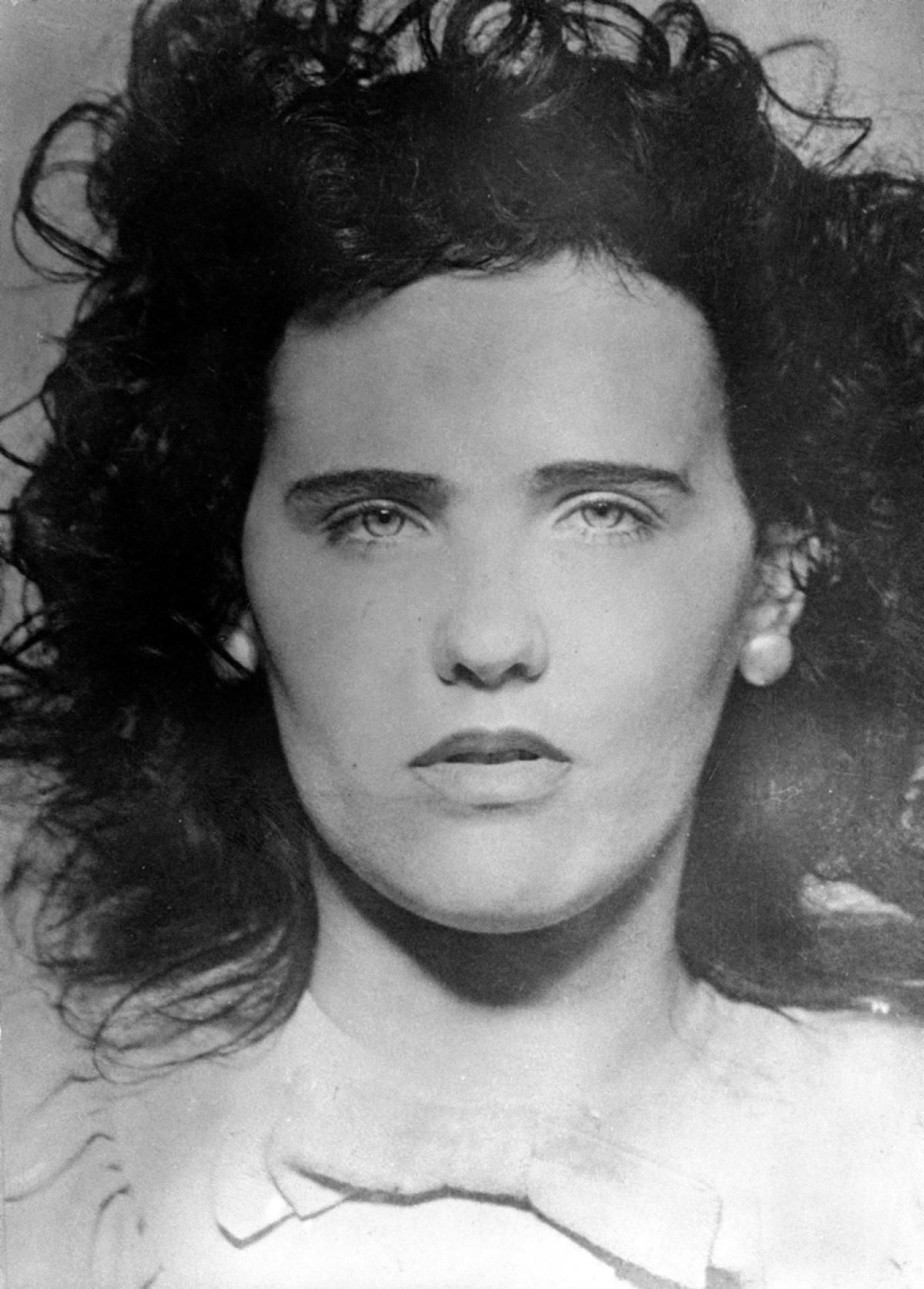When you dive into the world of true crime, there's one name that stands out like a dark shadow over Los Angeles: Elizabeth Short. Known as the Black Dahlia, her tragic story has captivated people for decades. Her murder in 1947 remains unsolved, and her life is as mysterious as the case itself. If you're curious about who Elizabeth Short really was, you're in the right place. Let's unravel the layers of her story together, piece by piece.
Before we jump into the gritty details, let's talk about why Elizabeth Short's case still resonates today. It's not just about the gruesome nature of her death—it's about the unanswered questions, the media frenzy, and the way her life was overshadowed by her untimely demise. This isn't just a story; it's a puzzle waiting to be solved.
Now, buckle up because we're about to take a deep dive into the life and times of Elizabeth Short. From her early years to the infamous nickname she earned posthumously, every detail matters. So, grab a cup of coffee, sit back, and let's explore the world of the Black Dahlia together.
Read also:Condom Calculator Your Ultimate Guide To Finding The Perfect Fit
Who Was Elizabeth Short?
Biography of Elizabeth Short
Elizabeth Short was born on July 29, 1924, in Boston, Massachusetts. She grew up in a modest family, and her early life was marked by a series of moves across the United States. Her father, Cleo Short, abandoned the family when Elizabeth was just a child, which left a lasting impact on her life. Despite the challenges, Elizabeth was known for her beauty and charm, traits that would later become part of her tragic legacy.
Below is a quick glance at Elizabeth Short's personal details:
| Full Name | Elizabeth Short |
|---|---|
| Nickname | Black Dahlia |
| Date of Birth | July 29, 1924 |
| Place of Birth | Boston, Massachusetts |
| Date of Death | January 15, 1947 |
| Cause of Death | Homicide |
Early Life and Background
Elizabeth's early years were anything but ordinary. Growing up in a broken home, she faced financial struggles and emotional turmoil. Her father's disappearance left a void in her life, and her mother, Phoebe Mae Welch, worked tirelessly to support the family. Despite these challenges, Elizabeth managed to maintain a positive outlook, often dreaming of a better life in Hollywood.
Her teenage years were spent in Florida, where she attended high school. Although she didn't finish her education, Elizabeth was known for her striking looks and friendly demeanor. Her aspirations to become an actress fueled her desire to move to Los Angeles, a dream that would eventually lead her to the city where she met her fate.
Why Was She Called the Black Dahlia?
Origins of the Nickname
The nickname "Black Dahlia" was coined by the media shortly after her death. It's believed to have been inspired by a popular film noir movie of the time, "The Blue Dahlia." The term "black" was added to reflect the dark nature of her murder. This nickname became synonymous with her case, overshadowing her real name and identity.
Interestingly, Elizabeth herself was never fond of dahlias. The nickname was purely a creation of the press, a sensationalized label that stuck for decades. It's a reminder of how the media can shape public perception, often at the expense of the truth.
Read also:Strahinja Jokic Height Weight Unveiling The Stats Of Serbias Rising Basketball Star
The Murder That Shocked Los Angeles
Details of the Crime Scene
On January 15, 1947, Elizabeth Short's body was discovered in a vacant lot in Leimert Park, Los Angeles. The scene was gruesome: her body was severed at the waist, and her face was grotesquely mutilated. The investigation quickly became one of the most high-profile cases in the city's history, drawing national attention.
What made the case even more shocking was the lack of leads. Despite numerous suspects and theories, no one was ever convicted. The police received countless tips, many of which were later deemed unreliable. To this day, the murder remains unsolved, a chilling reminder of the darkness that can lurk in the shadows of society.
Key Suspects and Theories
Who Could Have Done It?
Over the years, several suspects have been linked to Elizabeth's murder. One of the most prominent names is Dr. Walter Bayley, a local physician with a dark past. Another suspect is Joseph A. Dumais, a former soldier with a history of violence. However, none of these theories have been conclusively proven.
- Dr. Walter Bayley: Known for his erratic behavior and obsession with death.
- Joseph A. Dumais: Had a criminal record and was reportedly seen near the crime scene.
- George Hill Hodel: A controversial figure whose son later claimed he was the killer.
While the list of suspects is long, the evidence remains circumstantial. The lack of concrete proof has kept the case open for more than seven decades, fueling speculation and conspiracy theories.
Media Coverage and Public Reaction
How the Press Shaped the Narrative
The media played a significant role in shaping the public's perception of Elizabeth Short. Headlines screamed of a "beautiful young woman" whose life was brutally cut short. The press coverage was relentless, often focusing more on the sensational aspects of the case than the facts.
This media frenzy had a lasting impact on how the Black Dahlia case is remembered. It highlighted the power of journalism in influencing public opinion and the dangers of sensationalism in true crime reporting. Today, the case serves as a cautionary tale about the importance of responsible journalism.
The Legacy of Elizabeth Short
Remembering the Real Elizabeth
Beyond the headlines and the morbid fascination with her death, it's important to remember Elizabeth Short as a person. She was a young woman with dreams and aspirations, someone who wanted to make a name for herself in Hollywood. Her life was cut tragically short, but her story continues to inspire people to seek justice and truth.
Elizabeth's legacy is a reminder of the importance of empathy and understanding. It's easy to get caught up in the sensational aspects of her case, but we mustn't forget the humanity behind the headlines. Her story is a call to action, urging us to look beyond the surface and seek deeper truths.
Impact on True Crime Culture
Why the Black Dahlia Case Matters
The Black Dahlia case has had a lasting impact on true crime culture. It set the stage for future investigations and inspired countless books, documentaries, and films. The case highlighted the need for better investigative techniques and greater transparency in law enforcement.
Today, the Black Dahlia case is often cited as a benchmark for unsolved mysteries. It serves as a reminder of the challenges faced by investigators and the importance of justice for all victims, regardless of their background or circumstances.
Lessons Learned from the Black Dahlia Case
What Can We Take Away?
From the Black Dahlia case, we can learn several valuable lessons. First, the importance of empathy in true crime reporting cannot be overstated. Second, the need for thorough and unbiased investigations is crucial in solving complex cases. Finally, the case underscores the importance of remembering victims as people, not just as headlines.
These lessons are more relevant today than ever before. In a world where true crime is more popular than ever, it's essential to approach these stories with sensitivity and respect for the victims and their families.
Conclusion: The Ongoing Mystery of Elizabeth Short
In conclusion, Elizabeth Short's story is a tragic yet fascinating tale that continues to captivate people around the world. From her early life to her untimely death, every detail adds to the mystery of the Black Dahlia case. While the case remains unsolved, it serves as a powerful reminder of the importance of justice, empathy, and truth.
We invite you to share your thoughts and theories in the comments below. Do you think the case will ever be solved? What lessons can we learn from Elizabeth's story? Let's keep the conversation going and honor her memory by seeking answers and understanding.
Table of Contents
- Who Was Elizabeth Short?
- Early Life and Background
- Why Was She Called the Black Dahlia?
- The Murder That Shocked Los Angeles
- Key Suspects and Theories
- Media Coverage and Public Reaction
- The Legacy of Elizabeth Short
- Impact on True Crime Culture
- Lessons Learned from the Black Dahlia Case
- Conclusion: The Ongoing Mystery of Elizabeth Short
Remember, the story of Elizabeth Short is not just about a crime—it's about a person whose life was taken too soon. Let's keep her memory alive by seeking justice and understanding. Thanks for reading, and don't forget to share this article with your friends!



